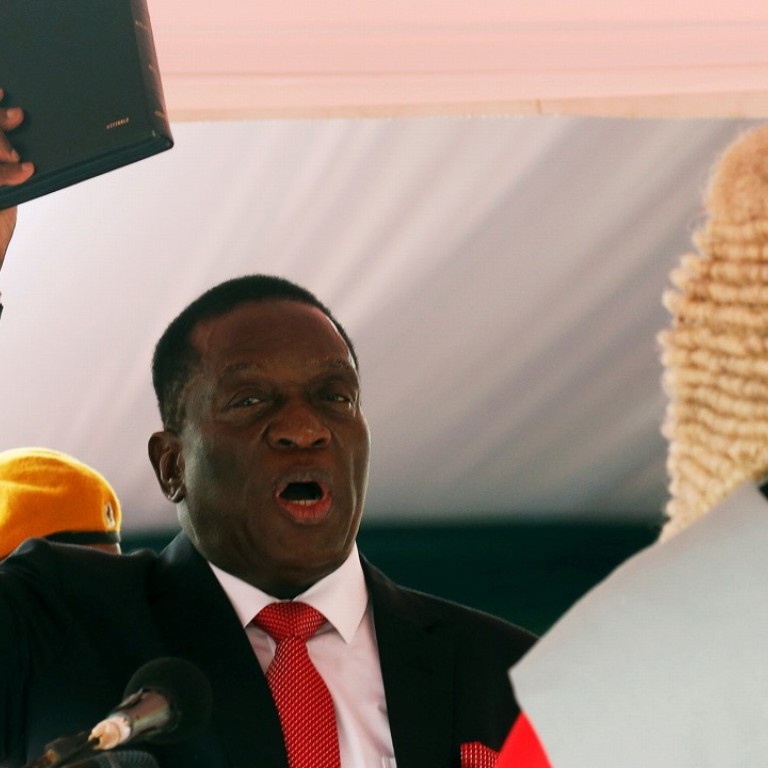
New doors open for China in Zimbabwe
The African nation’s new leader, Emmerson Mnangagwa, has promised a less nationalist approach in economic policy that could boost investor confidence
Robert Mugabe’s resignation as president of Zimbabwe marks a new phase in a relationship with China that endured the entire 37 years of his leadership. But far from raising a question mark over future ties, Mugabe’s exit could reinvigorate economic cooperation with China and bring the two nations even closer. The man who has taken over as head of state, former vice-president Emmerson Mnangagwa, has his own history of ties to Beijing, and is seen to be less hardline nationalist in his policies than Mugabe.
The need to open up the country’s economy could therefore create further opportunities for cooperation with China. The most urgent task is to undo Mugabe’s chaotic legacy of poverty, massive unemployment and hyperinflation. To break free of it the country needs stability and accountability to inspire investor confidence.
To get the 93-year-old Mugabe out of the way, the ruling party has agreed to an initial golden handshake of US$5 million with more to come, and payment of his US$150,000 annual salary for life. The comparison with his people’s plight is obscene. To justify it, Mnangagwa, once a faithful aide to Mugabe, will have to rebuild the shattered economy and the confidence of investors. His ties to China go back to the 1960s, with military and ideological training. Mugabe turned to Beijing for support for his independence guerilla fighters in 1979, and made the first of regular visits to China after independence in 1980. China is now Zimbabwe’s fourth-largest trading partner and largest investor, with stakes worth many billions of US dollars in everything from agriculture to construction. China’s unwavering support for Zimbabwe since before independence is testament to the strategic and economic importance Beijing attaches to relations with Africa. This has been reaffirmed by President Xi Jinping, who made Africa his first foreign port of call after assuming office five years ago.
Convincing Mugabe to go was the easy part. The hard part will be cleaning up the mess he has left behind and regaining the confidence of the expatriate talents the country needs. Zimbabwe has paid a heavy price for extreme nationalism, such as evicting white farmers from their land and forcing foreign companies to sell stakes in their ventures to local firms. Hopes that Mnangagwa is more open-minded are pinned on public criticism of policies that have deterred investors. Publicly Beijing may have reaffirmed a willingness to encourage investment in Zimbabwe, but privately it is believed to have made it clear greater stability will engender more confidence.
That said, Zimbabwe is a richly endowed country, offering big opportunities for investment. They depend on the leadership adopting sensible economic policies and not politicising them.

